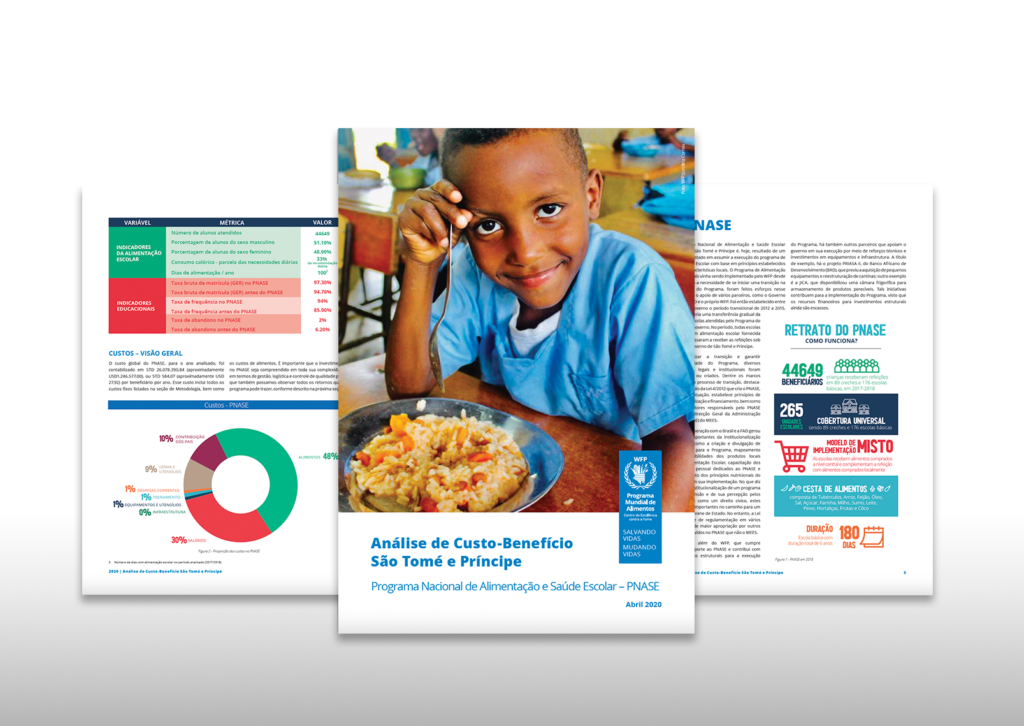
On Tuesday, June 22nd, an event marked the official launch of the cost-benefit analysis (CBA) report for the National School Feeding and Health Programme (PNASE) of São Tomé and Príncipe, produced by the WFP Centre of Excellence Against Hunger in Brazil, in collaboration with the WFP office in São Tomé and Príncipe, the Ministry of Education and Higher Education and the PNASE Coordination. Representatives of the country’s Ministries of Education and Higher Education, Agriculture and Finance, UN agencies, development partners, and civil society participated in the event held in São Tomé. Experts from the Centre of Excellence participated remotely through videoconference.
The cost-benefit study of PNASE is mainly focused on analysing the costs and potential benefits brought on by the programme. The recommendation to execute this type of analysis was made by the SABER exercise, an initiative to collect and share data on educational policies and institutions to support countries in strengthening education systems in a decentralized manner, back in 2016. The analysis is a relevant advocacy tool in favour of the programme, which faces challenges in securing funding, a common obstacle in several parts of the world. “By demonstrating the high returns of investment in school feeding, the cost-benefit analysis strengthens the defense of investing in the programme, which positively impacts the future lives of beneficiaries in terms of future productivity, health, and reduction of inequalities”, said Vinicius Limongi, a specialist at the WFP Centre of Excellence.
During the event, the PNASE Coordinator and the WFP Representative in São Tomé and Príncipe highlighted the challenges and impacts of the programme, which provides daily hot meals for more than 50,000 children in the country. Then, the Minister of Education and Higher Education, Julieta Izidro Rodrigues, emphasised the importance of the support the WFP received to develop the programme and the São Tomé government’s ambition to scale up school feeding.
“With the decisive participation of the government, we are already able to offer meals for preschool and basic education students, ensuring that children have access to healthy meals and energy for their development and learning. The cost-benefit analysis of PNASE is, for us, a representation of all the effort we have been making since 2012,” said the Minister. “São Tomé and Príncipe has been counting on essential help from development partners and intends to continue advancing to execute the programme through its own efforts, until it reaches all students in the country,” she added.
Vinicius Limongi, from the WFP Centre of Excellence, presented the report to the participants and painted a broad picture of the PNASE, the methodology used, the main results of the analysis and a series of recommendations for the programme based on its findings. “PNASE is one of the most advanced institutionally-designed programmes in the Global South. Fighting for funding and continuity is a constant effort, even in countries with more established programmes. This study supports this advocacy effort for investing and expanding the programme by highlighting the enormous opportunity for social and economic development it represents for the country,” said Vinicius Limongi.
The report is available in Portuguese and will soon be translated into English.




